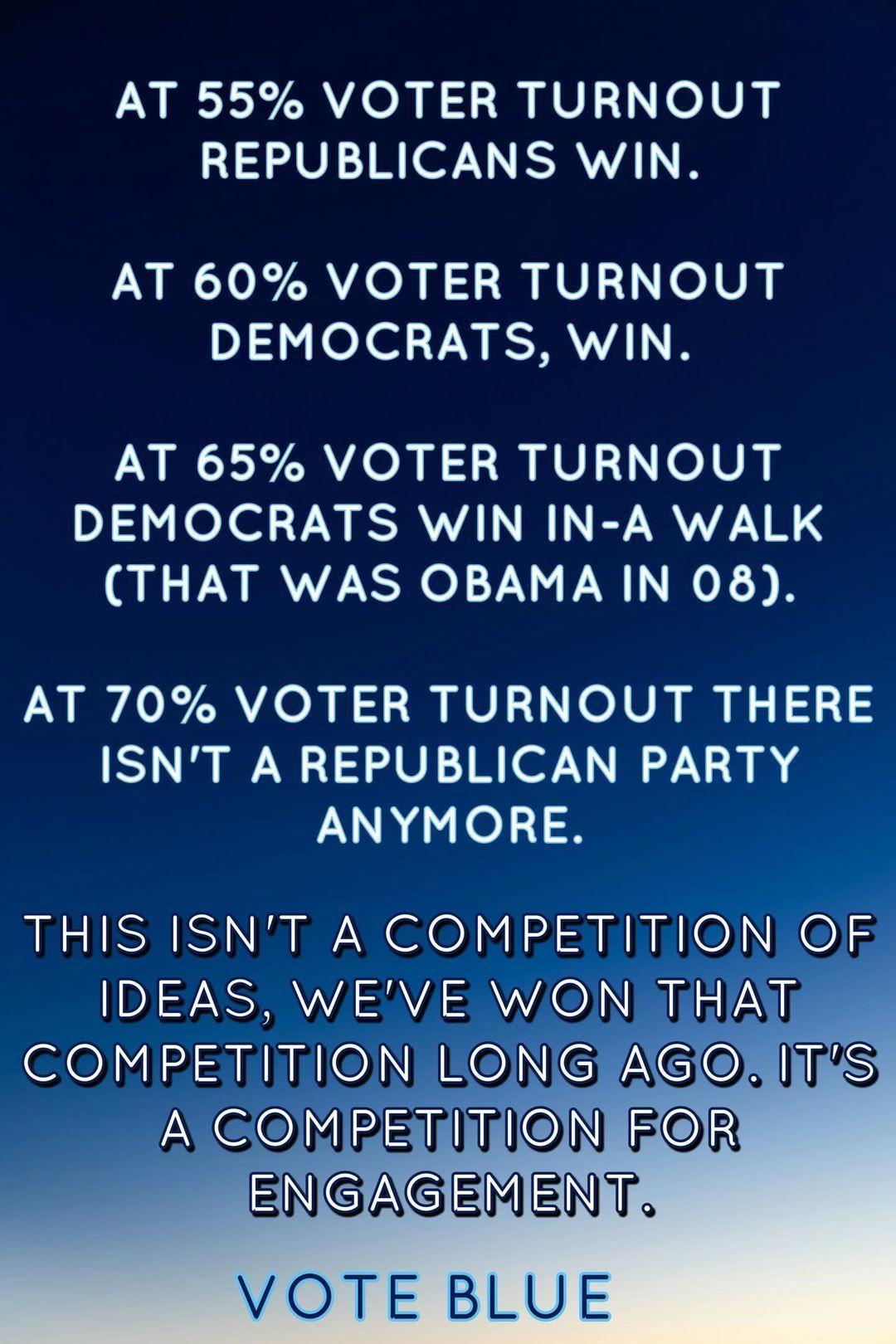this post was submitted on 09 Jul 2024
1526 points (93.1% liked)
Progressive Politics
1693 readers
877 users here now
Welcome to Progressive Politics! A place for news updates and political discussion from a left perspective. Conservatives and centrists are welcome just try and keep it civil :)
(Sidebar still a work in progress post recommendations if you have them such as reading lists)
founded 2 years ago
MODERATORS
you are viewing a single comment's thread
view the rest of the comments
view the rest of the comments

I mean, it's pretty hard to run as a progressive candidate if you're not running at the federal level. Not only are you working with a subdivision of a subdivision of a subdivision of the country's population, but there's not many actionable progressive policies that you can actually enact at the local level, where austerity politics (due to lack of power and federal funding) and NIMBYism are more free to reign supreme. You can't exactly enact universal healthcare at the local level. Hell, you can barely get it across to house the local homeless and your resources are probably gonna be maxed out as soon as that comes up. Local infrastructure is something that can take years and years for changes to take effect, so even if that's a pretty controllable thing at the local level, it's very hard for that to be an actually campaign-able issue. Local elections are also going to have larger disparities between who's able to communicate their message effectively because they're going to have larger disparities in terms of funding, which is obviously going to reflect voter engagement very directly.
It's a much more solid and impenetrable catch-22 than people would generally be led to believe. People would like to just say that we need higher voter turnout for the city water commissioner, or that we need people to run for those positions and other positions where elections are basically a formality, and be done with it, but the issues even at the local level are systemic and pretty heavily entrenched and there are lots of thing that you can't really make serious progress on without a large level of federal intervention or funding. Those things are worth doing in their own right, sure, and at an even more atomic level, volunteering at a soup kitchen or whatever other actual local work is something that can be rewarding just by itself, right, because it makes you a better person, helps people, etc. But I also wouldn't expect those things on their own to cause a massive upset or a series of cascading progressive victories, in the same way I would expect random fluctuations in the fabric of the universe to spawn a strawberry rhubarb pie right in front of me, unless the circumstances of the pie were to already be in effect or so on.
I suppose what I am saying is that it's pretty hard to fix the apathy because the apathy is a sensible response in many respects. At one hand, the apathy is a normal response to seeing that you are adrift in a kind of sea of chaos and noise where you are but one actor that can do basically nothing in the grand scheme. It's a sensible response when you understand that the things which keep you in that sea of chaos and noise are heavily entrenched and very hard to change. It's a sensible response when whatever grand narrative you were clutching to in order to make sense of the world has been exposed as totally false and hollow and probably made up by some guy in the 1800s. Apathy is especially a sensible response when you understand all of this, and also want to keep doing what you've been doing because it's really the only thing you know how to do and you're at odds otherwise with how to survive, and aren't very risk-taking specifically because you're in a kind of survival mode. The problem is I think that this is a kind of adverse adaptation, and there are some changes which are necessary to survive in such conditions. Community with other people is one of the things which consistently helps out the most in actual crises, either personal or grand in scale, and community with others is also one of those things that happens to line up precisely with political action.
Which is to say that I think the apathy will probably solve itself, because it's going to be pretty much either sink or swim, are you in or are you out, and I don't think people are going to find themselves with the luxury of inaction for very much longer or else they will probably more consistently condemn themselves to a lack of resources out of some sense of pride or just raw antisocial outlooks. But then, people knew smoking were killing them for a really long time, and that never really tapered off too much until places started banning it, so, who knows, maybe we're all just fucked.